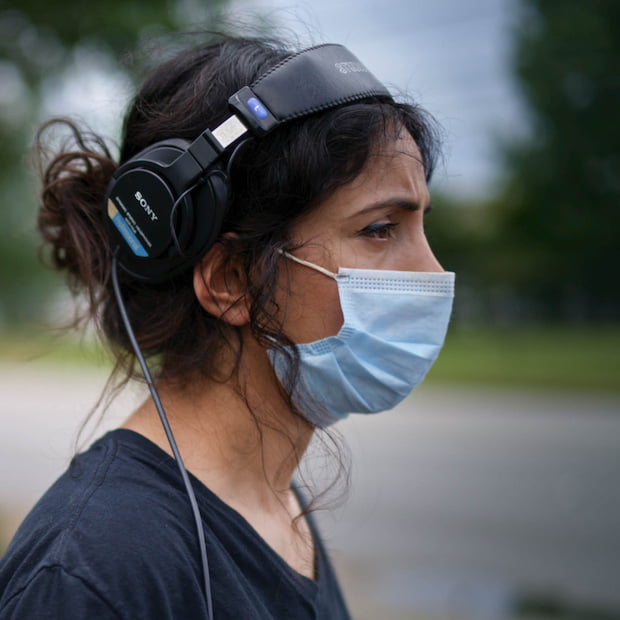Shining a light
Filmmaker and human rights activist Deeyah Khan discusses her recent documentaries about the US, decaying trust in journalism and the idea of denying a platform to controversial views.
Deeyah Khan has never been afraid to walk a controversial path into places she’s not welcome. Born in Oslo to Sunni Muslim parents from Afghanistan and Pakistan, her first passion was music and singing – considered a dishonourable profession for women in many Muslim communities and a cause of abuse and death threats directed towards her and her family.

Deeyah Khan
After that she picked up a camera and started filming stories that fascinated her. Khan’s first documentary, Banaz: A Love Story, focused on the ‘honour killing’ of a Kurdish woman by her family in South London and won a Peabody and Emmy.
In 2017, she made White Right: Meeting The Enemy, embedding with white supremacists and neo-Nazis leading up to the riots in Charlottesville, Virginia in the US. And, more recently, she’s been back to the US to film Muslim in Trump’s America and America’s War on Abortion. All of these films have aired on UK commercial broadcaster ITV.
As well as the challenges that come with filming in a Covid-19-ravaged country, Khan came up against predictable issues around access during the filming of America’s War on Abortion, which aired in the UK in the run-up to last year’s US election.
“A lot of organisations, women’s groups and doctors were not interested in being on camera because it would attract attention and potential violence. It’s sad and terrifying to think that, in America in 2020, a democratic and free society, people are terrified to do their job and women are terrified to access help they need.

Deeyah Khan filming Muslim in Trump’s America
“If I was going into a closed, conservative, Muslim community I would expect to hear about shame and taboo restricting women. But not in America, the land of the free, in 2020.”
There have been strong calls to deny a platform to the sort of white supremacists and anti-abortion activists Khan has filmed for her recent projects, but that’s not an idea she subscribes to. “The point is not to find out what they think, because we know that. It’s to find out what makes a human being susceptible to these ideologies and behaviours,” Khan believes.
“I don’t agree with completely banning or shutting those voices out. It might suit us and we can pat ourselves on the back for having the ‘correct opinions,’ but it doesn’t make those opinions go away. They’re easier to dismantle if you bring them out into the light and scrutinise them. If we shun and push them away, it feeds into the story that they’re somehow telling a forbidden truth that people can’t handle.”
Khan, who founded and serves as CEO of media and arts prodco Fuuse, has spent much of the last 15 years filming around the US and says it is becoming much more difficult to travel the country with a camera.
“The whole perception of fake news means anybody carrying a camera in the US at the moment is viewed with suspicion. Everybody thinks you’re out to get them or exploit them in some way,” she says. “It’s become more dangerous because people are more physically aggressive to journalists and each other. It’s become profoundly divided. Every time I go there now it gets worse and feels worse.”
As for journalism’s issue with ‘fake news,’ Khan says trust needs to be regained, among both the audience and the subjects on film. But it’s not going to be easy.
“We have an uphill struggle to try and undo the sheer number of unreliable sources of information out there now,” she says. “People don’t tend to interact with those who are different, so the only time they get to meet a Muslim is through the media. If they’re all toxic stories of beheadings, stabbings and bombs, no wonder you will be terrified of them and think they have to go and attack them. We have to look at how we contribute to some of the divisions that are deepening.”





































